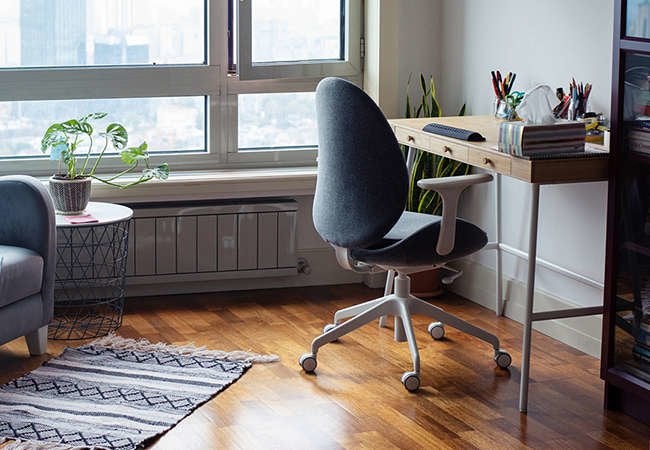

We may earn revenue from the products available on this page and participate in affiliate programs. Learn More ›
Home Advice You Can Trust
Tips, tricks & ideas for a better home and yard, delivered to your inbox daily.
Sound Effects

Sound waves carry through air and, to a lesser extent, through certain types of construction materials, such as metal and wood. While good construction practices will reduce sound transfer, they won’t completely eliminate it. The solution to a noisy room is to incorporate sound-dampening objects and materials, which will help absorb sound waves and keep them from becoming irritating or overwhelming.
Switch to a Solid Door
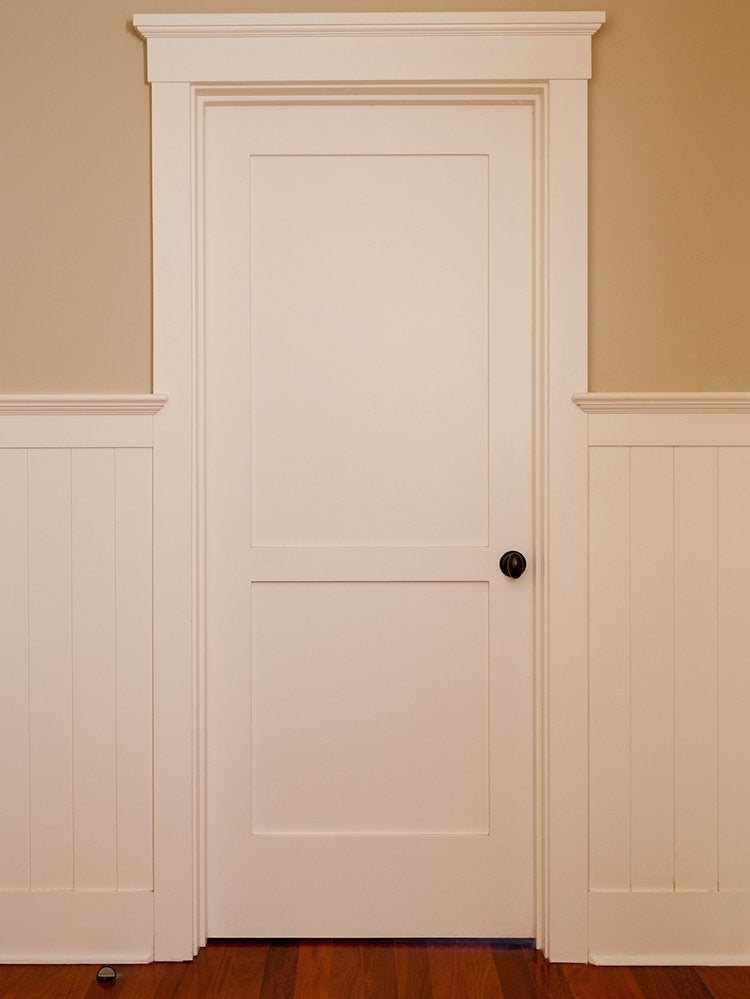
Hollow-core doors are found in many of today’s homes because they’re affordable, but sounds easily pass through these doors. If you have a hollow-core office door, consider swapping it for a solid wood door that will provide a better sound-absorbing barrier to block noise that originates on the other side.
Install a Door Sweep
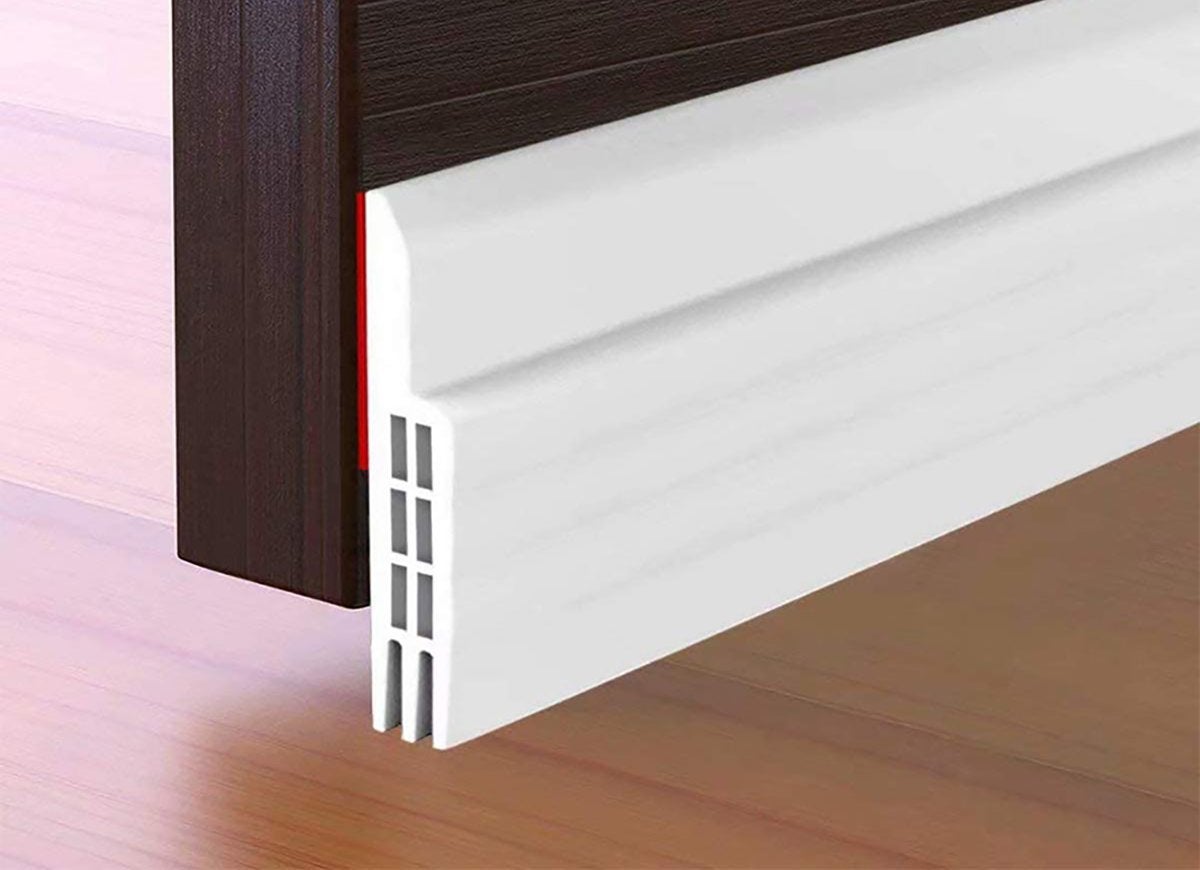
In addition to swapping out a hollow-core door with a solid one, you’ll get better noise reduction if you seal the space under the door with a sweep such as the Suptikes Soundproof Under Door Seal (available from Amazon). This will dampen the sound that sneaks under the door. You can further reduce sound transfer by installing weatherstripping around the sides and the top of the door.
Seal Wall Holes
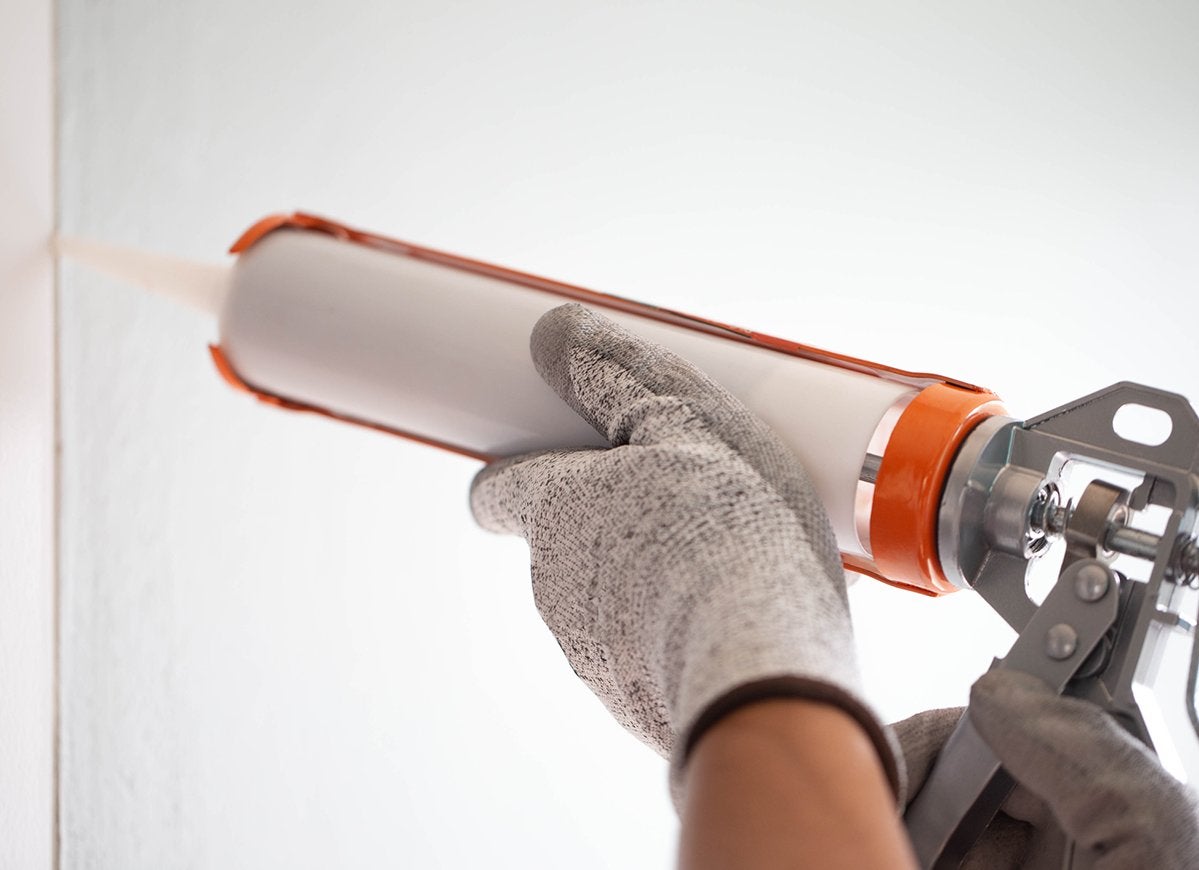
A well-built wall offers moderate sound reduction, but if it has holes, such as gaps that are commonly found around outlets or ducts, you’ll be more likely to hear sounds that originate on the other side of the wall. By sealing the holes with all-purpose caulk, you can reduce the amount of sound that enters your office.
Install Acoustic Panels
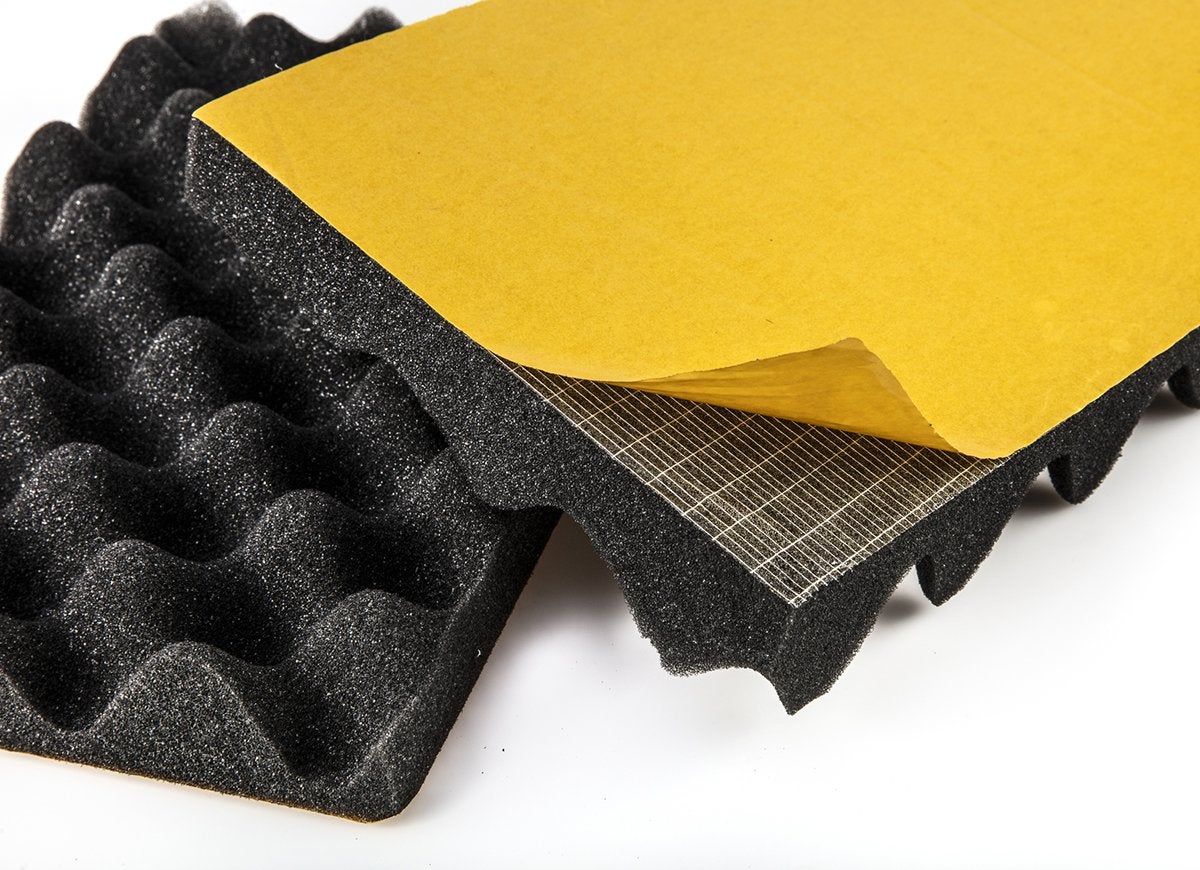
One of the best ways to damper excess noise is to install acoustic panels on one or more of walls in your home office. Bare walls create an echo chamber, but by installing sound-absorbing panels, such as these ADW Acoustic Panels (available from Amazon), you can update the look of your office while reducing the noise level in the room.
Add Rugs

Sound waves bounce around in rooms with hard flooring, such as tile or laminate, but you don’t have to install wall-to-wall carpeting to get some soothing sound relief…just add some rugs. One or more area or throw rugs—the thicker and softer, the better—will absorb harsh noises and prevent a resounding effect so you can concentrate on getting some work done.
Soft Wall Hangings

Just as insulation offers noise-reduction, so will hanging a quilt or an ornamental rug on a wall in your home office reduce sound transfer into the office from the other side of the wall. The thicker the item, the more sound-absorbing ability it will offer. Think creatively with this one, a snuggly baby blanket or even a crib comforter can make a big difference in reducing unwanted noise.
Opt for Upholstery
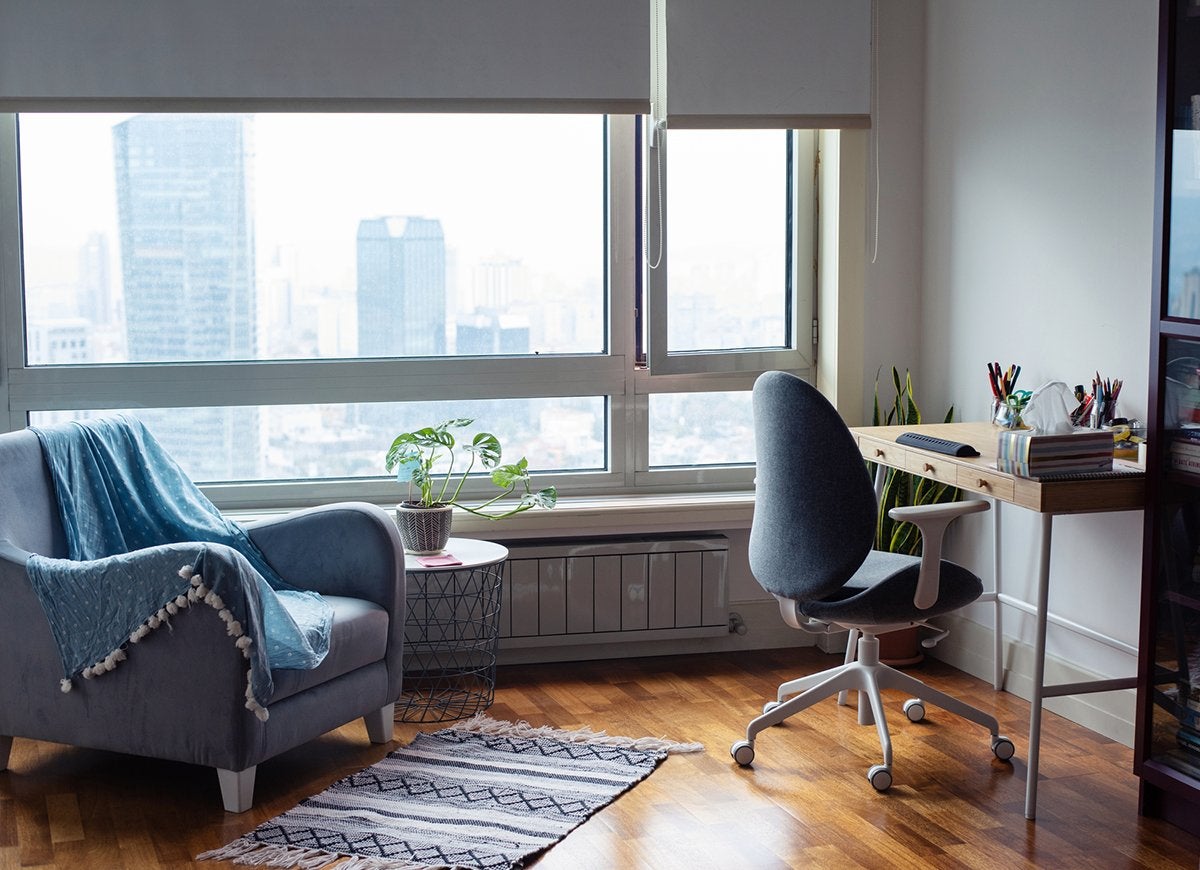
Get rid of hard wooden chairs and bring in a padded desk chair and an overstuffed chair or loveseat (if you have the room) to further reduce annoying noises. While you’re at it, dress up your office furniture with a couple of soft pillows for added sound absorption.
Noise-Proof the Ceiling
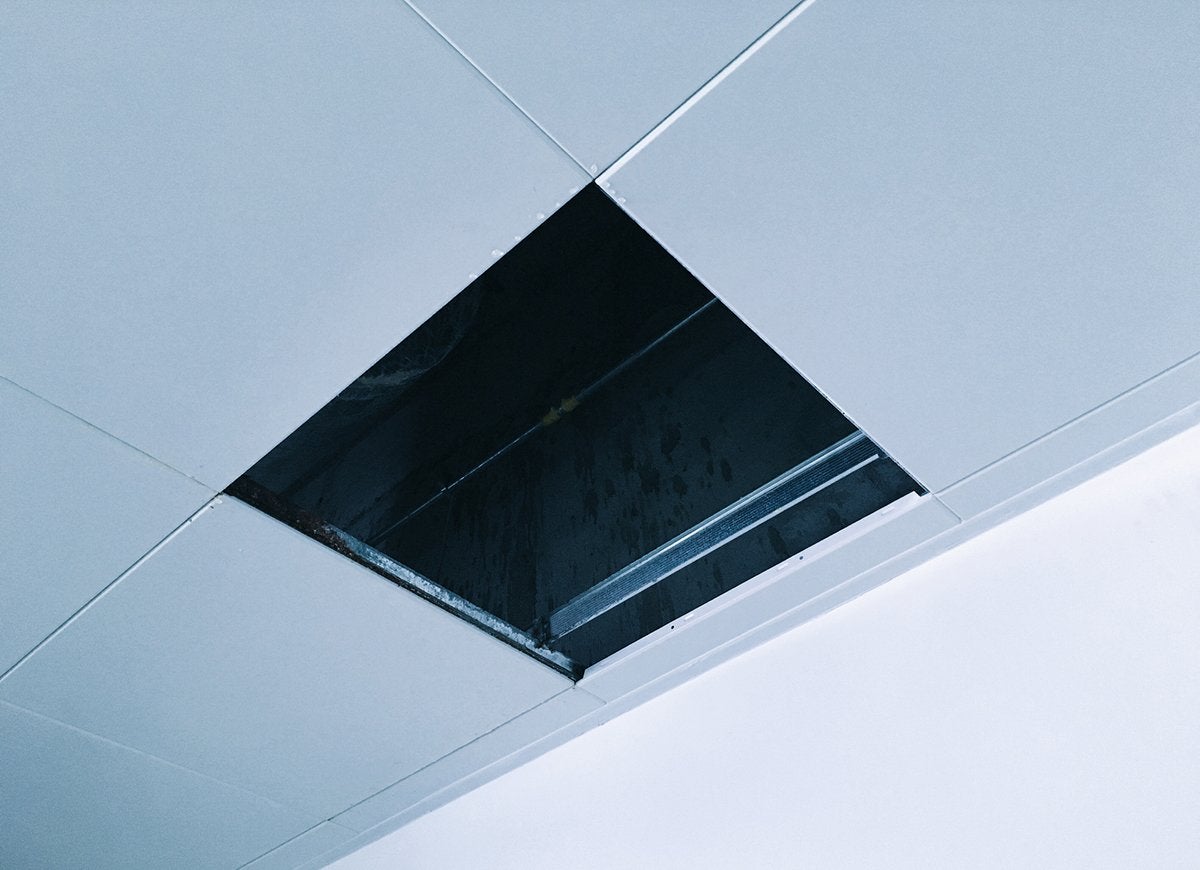
If your home office is tucked away in a basement, sounds from overhead are likely the biggest noise culprit. For permanent noise reduction, consider installing a drop ceiling and fill the space between the old ceiling and the new dropped panels with high-density insulation, which will create an instantly quieter office.
Soften Window Noise
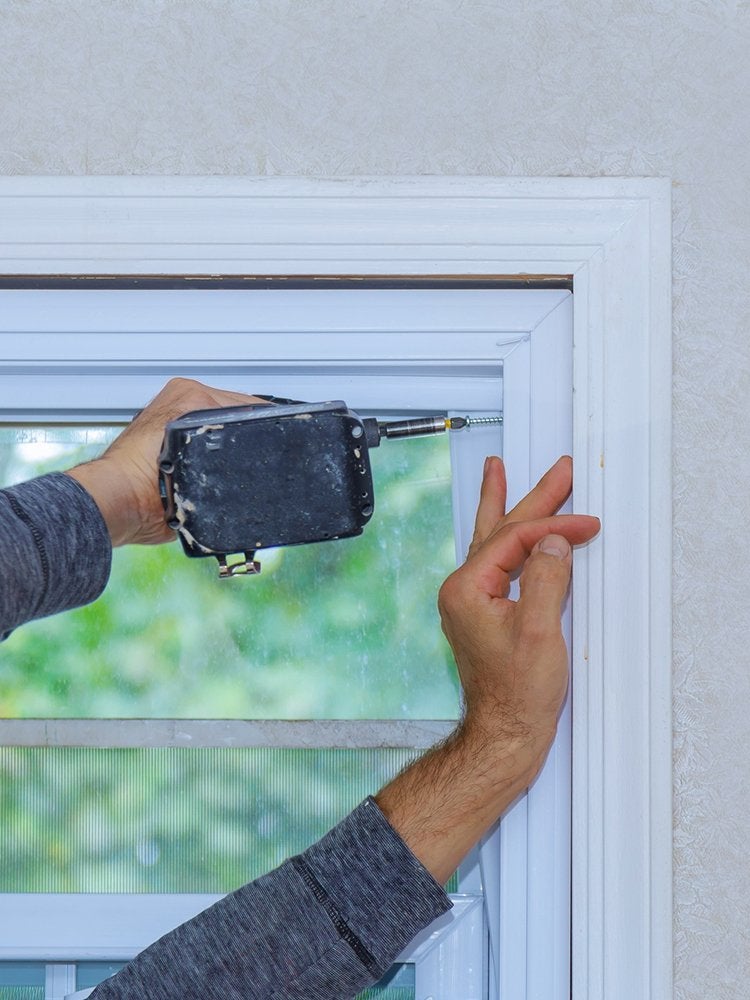
Having an office with a window that looks out on a busy street, can be a major source of unwanted noise, especially if the window is an older single-pane model. If it’s in the budget, consider replacing the old window with a newer double- or triple-pane unit, and hang thick draperies or install interior window shutters to block even more sound.
Consider a White Noise Machine
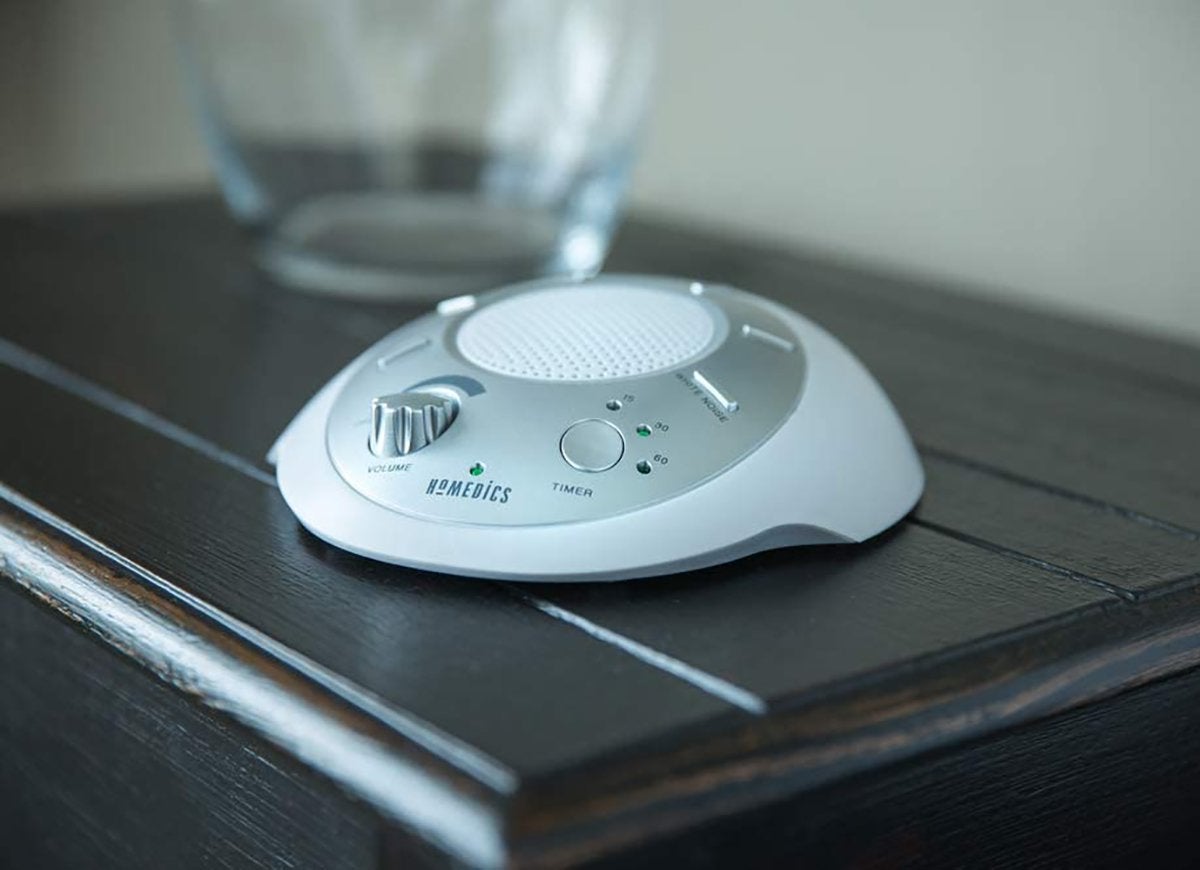
If you’ve taken the previous steps to reduce noise but you still find yourself being distracted by sounds, consider investing in a white noise machine, such as the Homedics White Noise Machine (available from Amazon). Unlike erratic noises caused by cars driving by or planes overhead, a white noise machine emits a continuous soft stream of soothing sound, such as falling rain or the surf breaking on the beach, which helps you tune out unwanted sounds in your environment.
Getting Down to Business
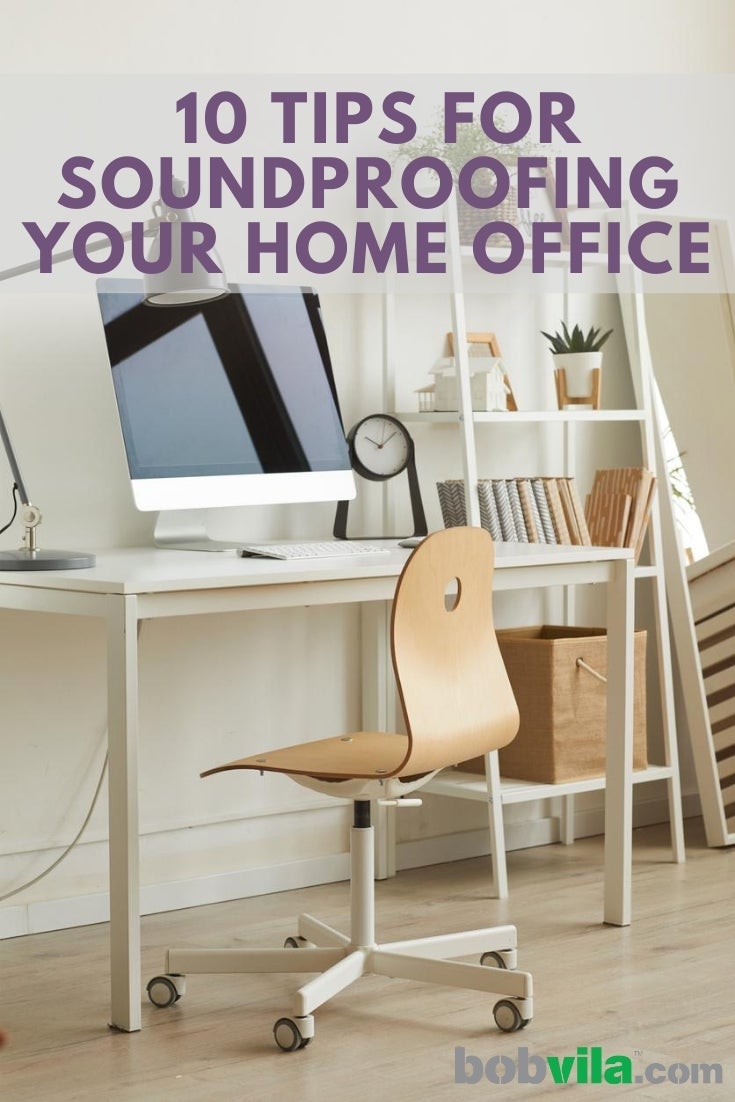
Working from home isn’t always easy, but with these soundproofing tips in hand you hopefully will be able to cross off more items on your to-do list.

Meet the 2025 Tools of the Year
After months of scouring the market and putting products through their paces, we’ve named the best of the best in new tools. There’s something for everyone, from veteran pros to average Joes.